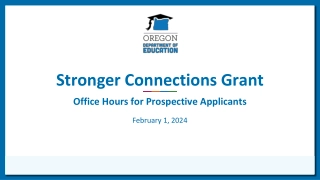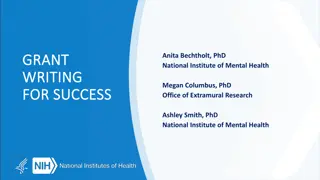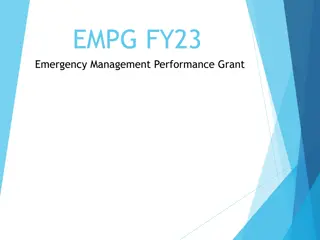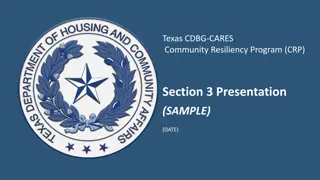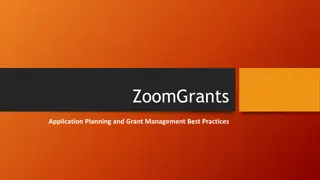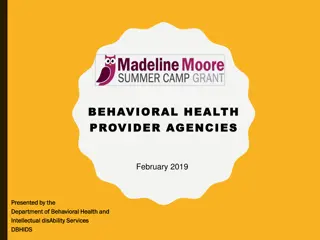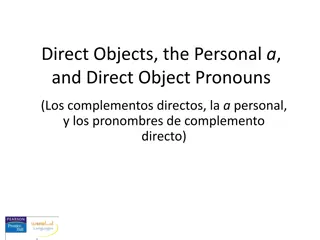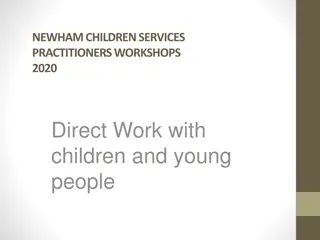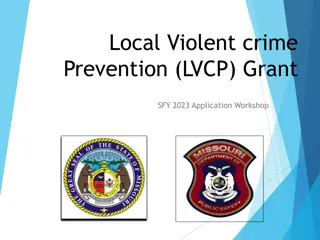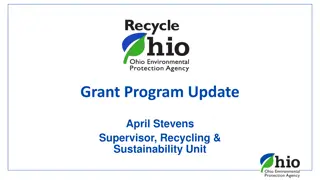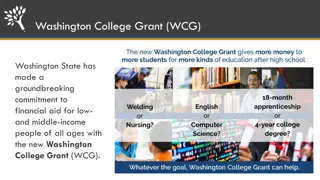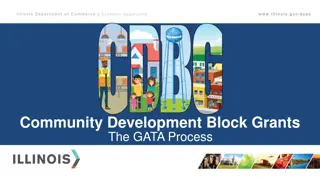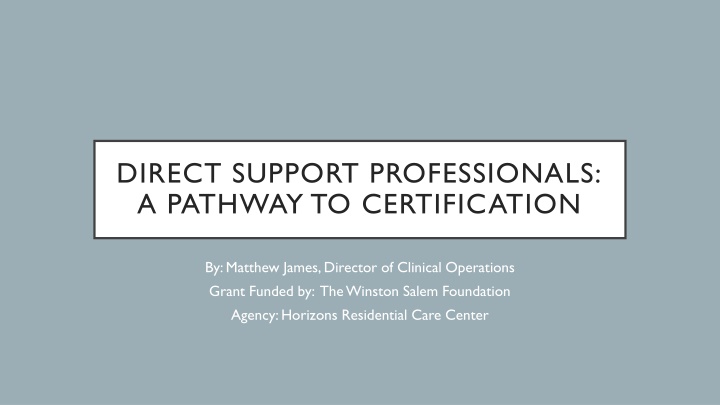
Empowering Direct Support Professionals Through Certification Program
Explore the grant initiative aimed at addressing the challenges faced by Direct Support Professionals (DSPs) in terms of wages and turnover rates. Learn about the purpose of the grant to improve wages, establish a workforce database, and create a positive image of the profession. Stay updated on current progress and the next steps towards enhancing the DSP workforce.
Download Presentation

Please find below an Image/Link to download the presentation.
The content on the website is provided AS IS for your information and personal use only. It may not be sold, licensed, or shared on other websites without obtaining consent from the author. If you encounter any issues during the download, it is possible that the publisher has removed the file from their server.
You are allowed to download the files provided on this website for personal or commercial use, subject to the condition that they are used lawfully. All files are the property of their respective owners.
The content on the website is provided AS IS for your information and personal use only. It may not be sold, licensed, or shared on other websites without obtaining consent from the author.
E N D
Presentation Transcript
DIRECT SUPPORT PROFESSIONALS: A PATHWAY TO CERTIFICATION By: Matthew James, Director of Clinical Operations Grant Funded by: The Winston Salem Foundation Agency: Horizons Residential Care Center
THE PROBLEM Some quick facts about our crisis: Average DSP wages are $10.72 per hour Average DSP waged below the federal poverty level for a family of four Half of DSPs relying on government-funded and mean-tested benefits Most DSPs working two or three jobs Average annual DSP turnover rates of 45 percent. Up to 76% percent reported Average agency vacancy rates of more than 9 percent (the Report to the President 2017: America s Direct Support Workforce Crisis, https://www.nadsp.org/wp- content/uploads/2018/02/PCPID-2017_-Americas-Direct-Support-Workforce-Crisis-low- res.pdf. There are 755+ people with intellectual and developmental disabilities in Forsyth County on the Innovations Waivers Registry of Unmet Needs Waitlist and over 14,000 Statewide.
PURPOSE OF THE GRANT The Grant seeks to: 1 Improve Wages Financial data from willing provider agencies; 3 year tracking average wages $15 hourly minimum within 3 years 2 Establish centralized workforce database Number of agencies that utilize the platform for hiring purposes; number of colleges/universities that utilize the program to load graduated students; number of potential employees loaded into the portal; number of self-directed service users connected to the electronic data-base. Reduce the number of unstaffed hours by 10% or more (MCO provided data, if available). OR Assess a baseline of connected stakeholders after year one and set incremental target of 10-25% more each year after depending on network capacity. Build awareness of critical importance of profession and potential for livable wages, career development, good benefits, and work-life balance. Ensure that sufficient universities and colleges within Winston Salem/ Forsyth County region provide access to the coursework to sustain the workforce demand (first year goal of 2; one or more each year after for two years). 3 Create a positive image of profession Feedback to media campaigns. Tools will vary by campaign. 4 Create a Direct Support Professional certificate/curriculum Adopted by credentialed colleges and universities for implementation.
CURRENT UPDATES AND PROGRESS Partnered with Mt. Eagle College & University to offer the pilot DSP certification program. Launch Jan. 2021 Developed a dynamic team of stakeholders to inform this project (DHSR, DMH. MCO reps, Provider agencies, Self-directed service recipients, etc. Designed a hybrid program (online & in-person) with a paid internship/work experience. NC Rapid Resource- funding and building a database to house graduates Found sustainability funding in partnership with NC Works For existing employees Young unemployed adults People without employment
NEXT STEPS Bringing in Community College Stakeholders to help broaden access to the program Receive adoption and acceptance from Providers State-wide Ensure long-term funding sustainability Bring in more stakeholders to inform this project Combine this effort with other efforts to support the workforce development

